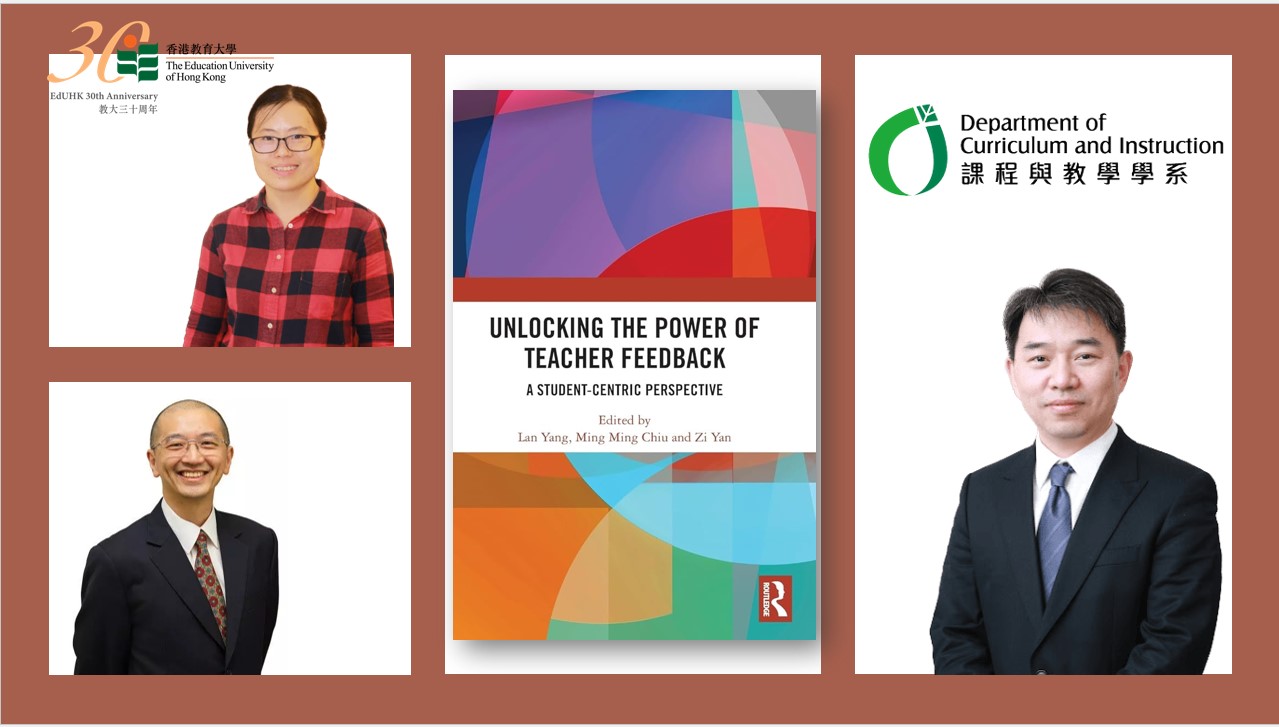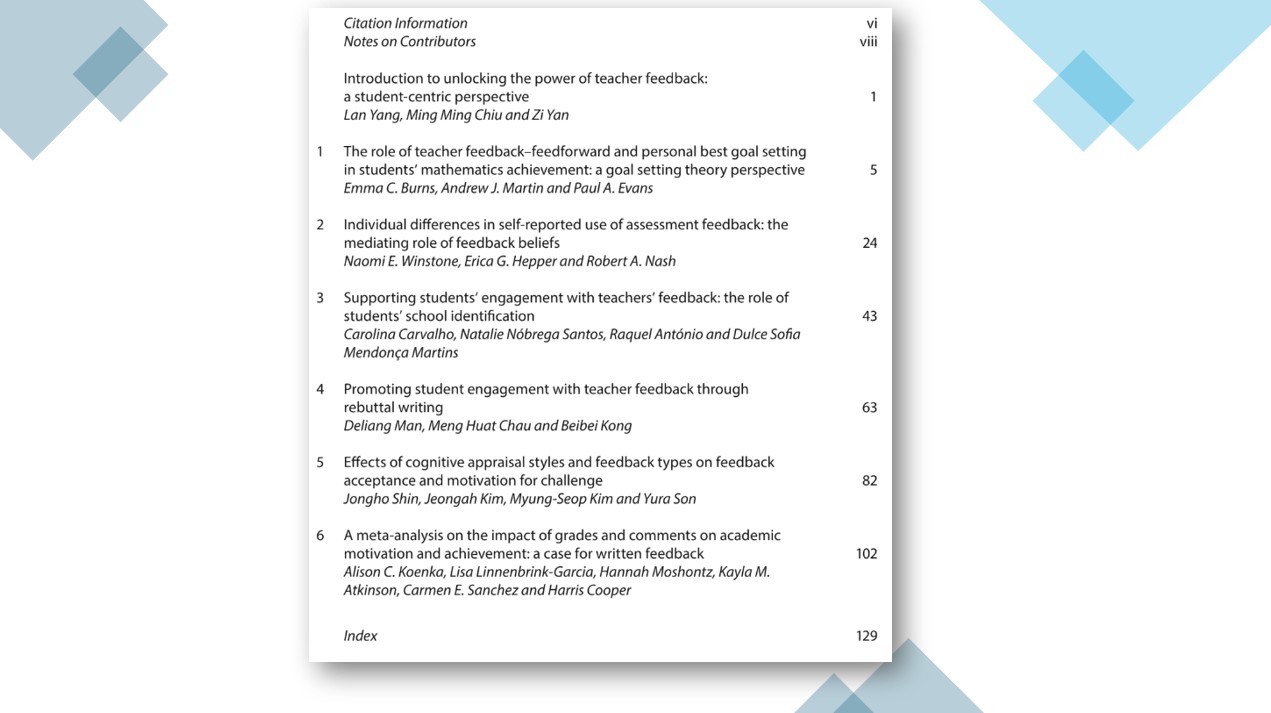The Department of Curriculum and Instruction is excited to promote a new book that contributes to addressing the pivotal role of feedback in enhancing students' motivation and learning. This volume entitled Unlocking the Power of Teacher Feedback: A student-centric perspective was published by Routledge. It uncovers how students perceive and utilize feedback, offering practical strategies for educators and bridging the gap between feedback research and classroom practice.
This book was edited by three scholars at the Education University of Hong Kong:
Lan Yang, Associate Professor and Associate Head (Research) at the Department of Curriculum and Instruction.
Ming Ming Chiu, Chair Professor at the Department of Special Education and Counseling and Director of the Analytic/Assessment Research Centre.
Zi Yan, Professor and Head of the Department of Curriculum and Instruction.

The book showcases six outstanding studies that offer unique insights into how teacher feedback influences student learning and achievement from students' perspectives. The authors of these Chapters delved into the significant role of feedback in education, providing profound insights into its importance, how students respond to it, and the mechanisms governing its impact on achievement and engagement. The volume reveals key mediators such as growth-oriented goals, feedback beliefs, and school identification, highlighting their influence on feedback's effectiveness. It also introduces practical strategies like rebuttal writing and emphasizes the need for personalized feedback aligned with students' cognitive styles. Additionally, the book provides a comprehensive comparison across grades and feedback comments, serving as a practical guide for educators, researchers, and policymakers. This guide facilitates the implementation of evidence-based feedback practices grounded in students' voices, ultimately enriching their learning. This book will be a key resource for researchers and academics in educational psychology, student learning, and assessment. It will also appeal to educators, teachers, school administrators, and policymakers seeking to enhance their understanding of feedback's role in education and improve their feedback practices.
